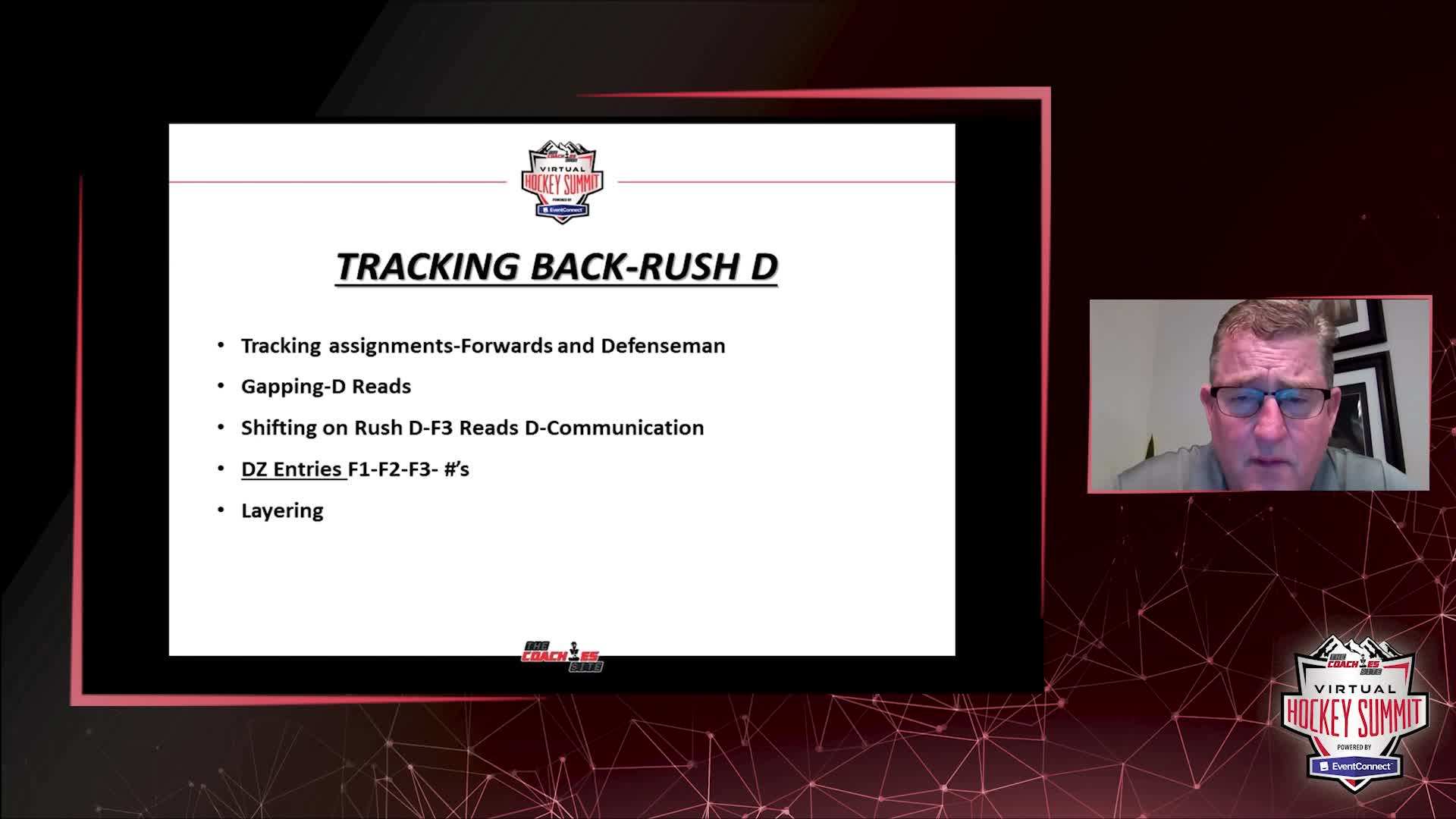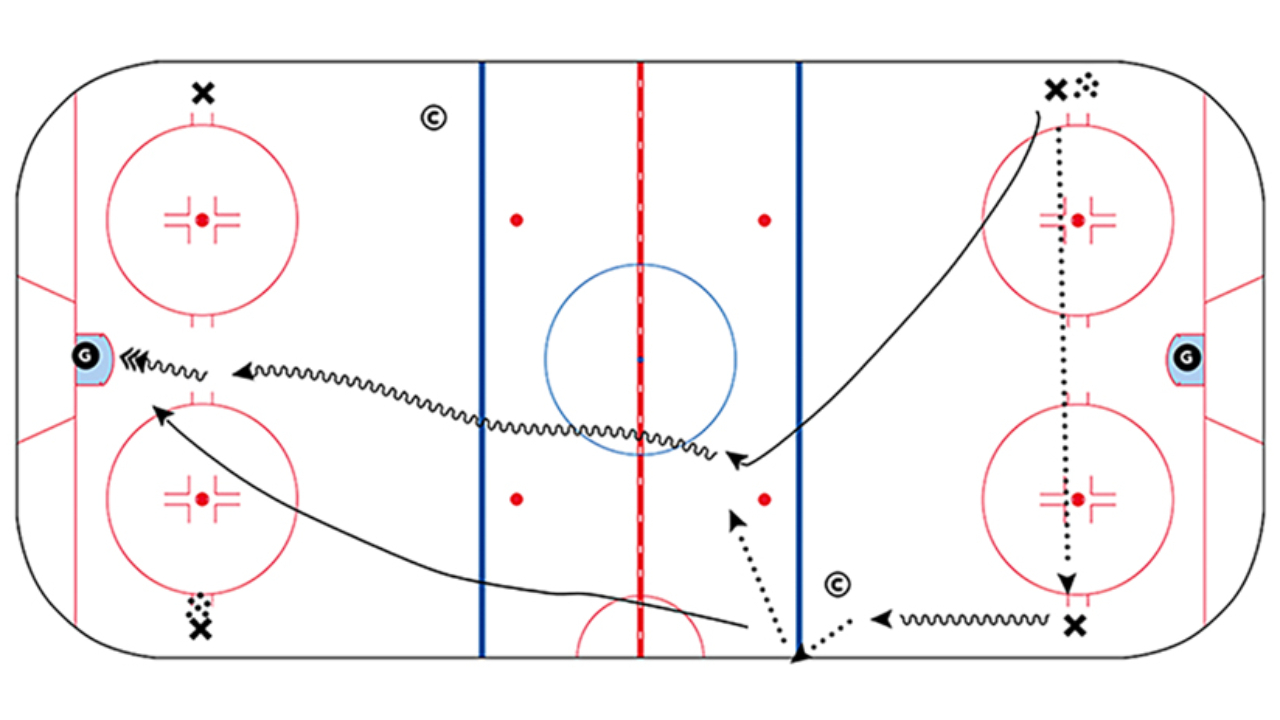
Derek Laxdal has coached from Major Junior to the National Hockey League, which has contributed to each team's success on and off the ice. As the current head coach of the Coachella Valley Firebirds, his focus on breakouts has improved both the individual player and team success. His presentation on Day 1 at TCS Live 2025 on breakout versus aggressive forechecks explained the details, energy, structure, and physicality needed to maintain possession. He described how when you play fast and break out fast, you are hard to play against as you wear the other team down.
The ultimate goal of his strategy was to either maintain or gain an advantage. Laxdal focused on effective puck retrievals using techniques like skate screens to create space and disrupt the forecheck. His defensemen are taught three points of deception: head fakes, stick positioning, and toe cap movements. When breaking out, teams have three primary options: weakside, strongside, or through the middle, with the key being to have numbers around the puck and communicate effectively. The most important aspect of mastering and perfecting this skill is practice. Laxdal gave examples of touch, half ice breakouts, and play on the move drills to strengthen team breakouts. Laxdal emphasized that the breakout begins with the ability to execute quick, connected passes that allow the team to transition from the defensive zone to the offensive zone with speed and minimal pressure.
Laxdal's breakout strategy was proven in his time with the Oshawa Generals while working with Calum Ritchie. While preparing him for his NHL debut in Colorado, Laxdal focused on the importance of support, structure, and routes during breakouts. They trained Calum in layers, focusing on the defensive zone, neutral zone, and offensive zone, all while encouraging him to attack the blue line with speed. Laxdal drew on clips of Nathan McKinnon to illustrate effective routes and tendencies, which are crucial aspects for junior players to adopt for success at the next level.
Advice for coaches: Be true to yourself and stay authentic in your coaching approach. Building strong relationships with your players and giving them respect and understanding will gain trust and confidence in the room. Laxdal says, “If guys can have a foundation, they will get out of the zone 9 times out of 10.” Practice makes perfect, so consistently working on tactics helps educate your team. Finally, his most important aspect: balance your coaching passion with personal life. Don’t take the game home, and always make time for family.
Story written by TCS Live intern Carly Ryder.

















